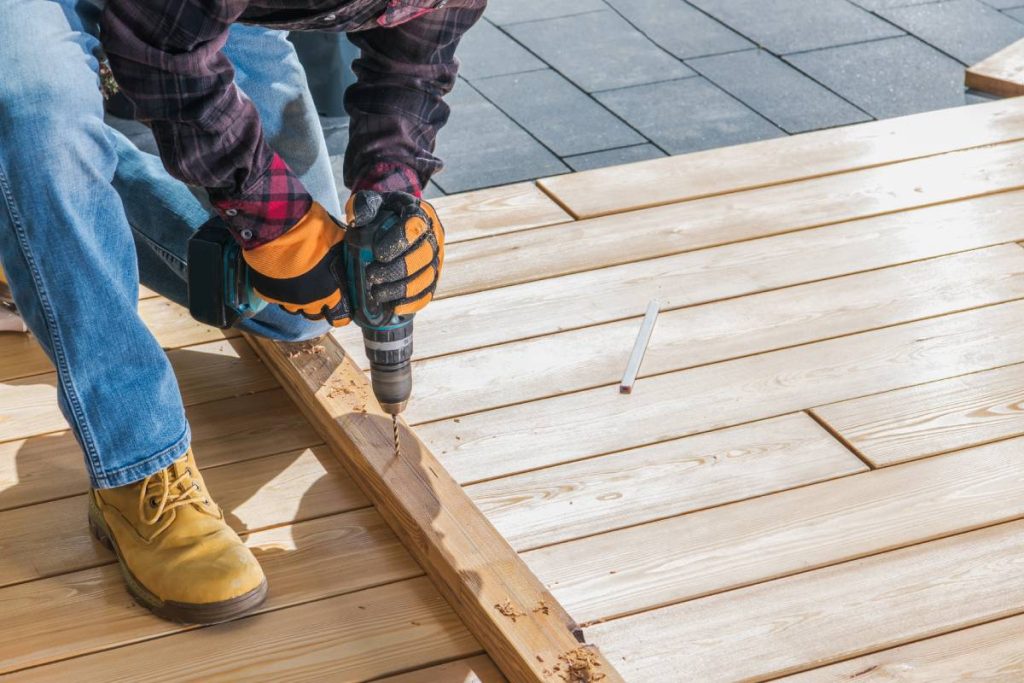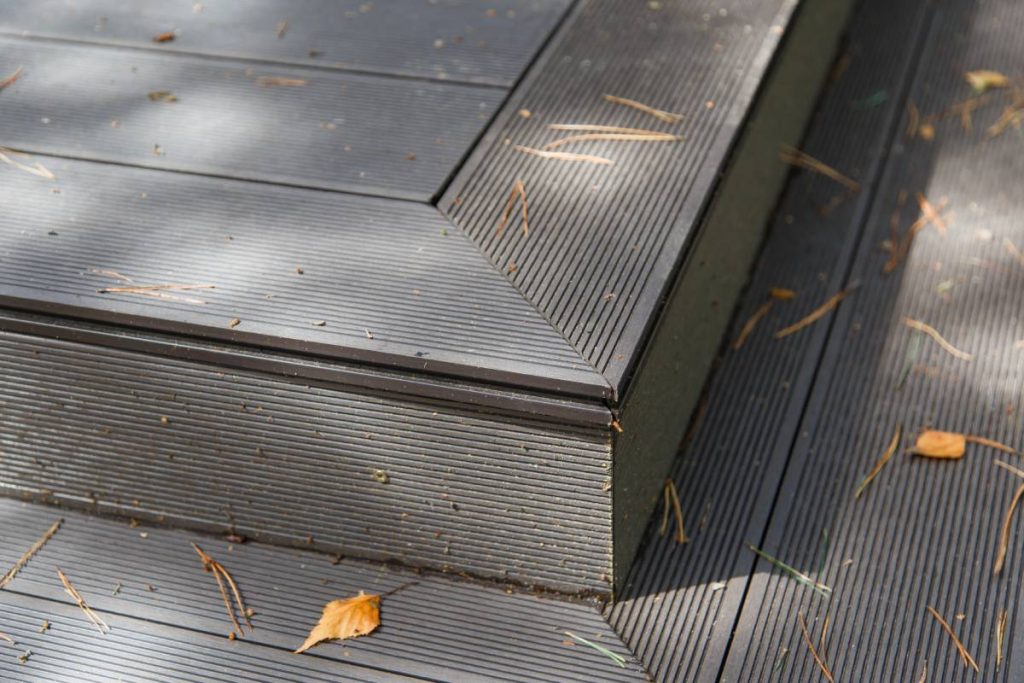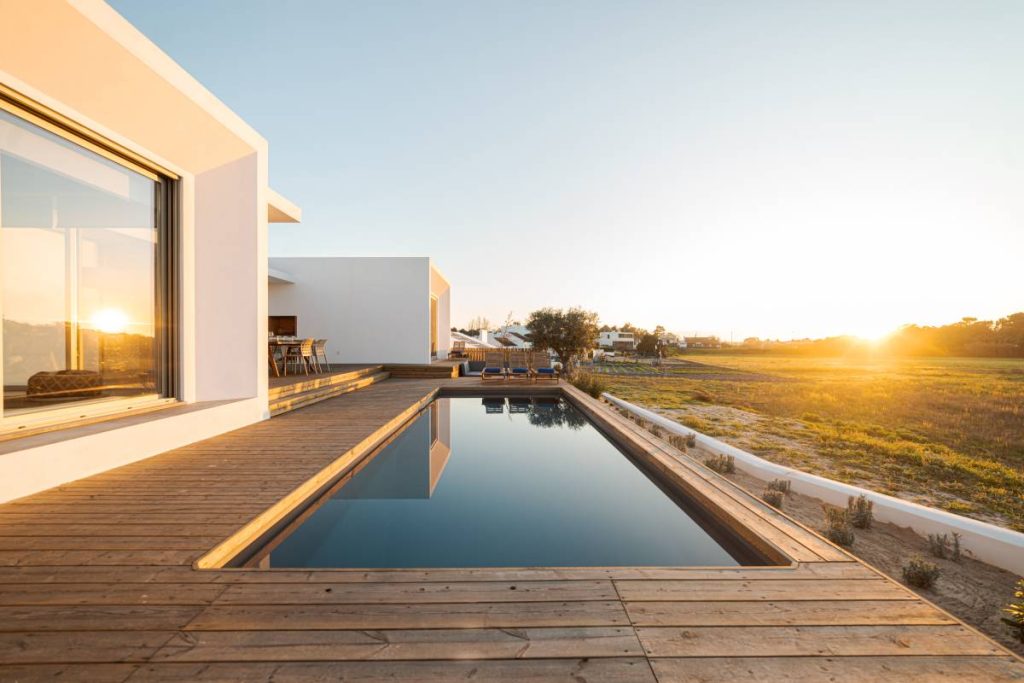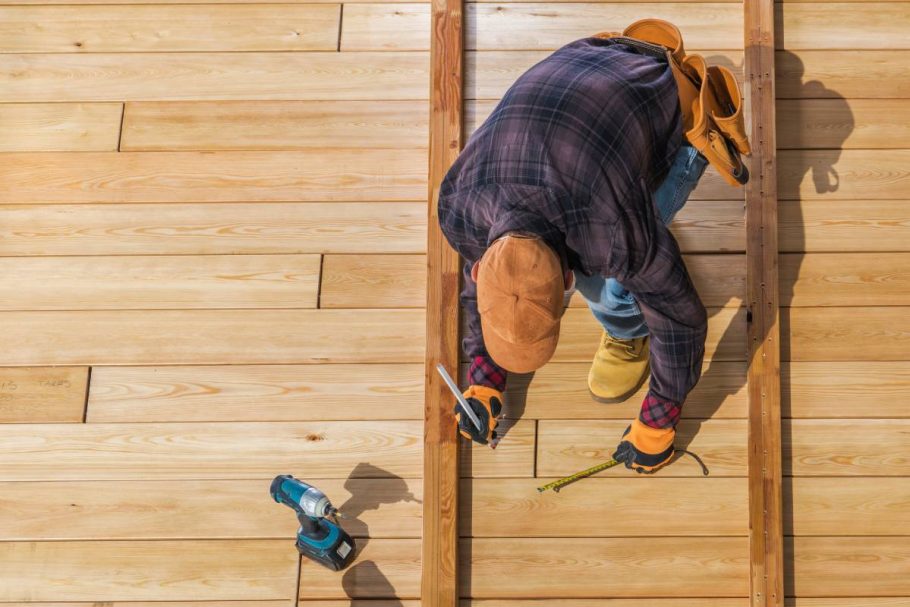When it comes to creating a beautiful outdoor space, quality decking plays a crucial role. Timber decking in particular is a popular choice due to its natural aesthetic and innate versatility. However, choosing the right type of timber, knowing how long it will last you, and indeed whether or not it is the right decking material for you can feel overwhelming.
In this blog post, we’re going to answer these questions and more, providing you with valuable insights to help you make an informed decision for your garden renovation project.
What Type of Timber is Used for Decking?
So, what type of timber is typically used for decking? Is there a certain species that stands above the rest? Here’s what you need to know:
- Hardwood species like Merbau, Spotted Gum, and Jarrah are commonly used for decking.
- Softwood options such as treated pine and cedar are also popular choices.
- Each timber type offers unique characteristics, including colour, grain pattern, durability, and resistance to weathering.

Be sure to consider factors like aesthetics, maintenance requirements, and the climate in your area when selecting the timber for your decking project. For example, there’s no good opting for appearance alone if your choice will require you to spend far too much of your time maintaining the decking itself. And in the same breath, easy maintenance doesn’t always justify a less attractive timber so it is important to find the right balance.
How Long Does Timber Decking Last?
- The lifespan of timber decking depends on various factors, including the type of timber, your commitment to maintenance, and exposure to the elements.
- Generally, hardwood decking can last anywhere from 10 to 25 years with proper care and maintenance. In some cases, high-quality timber that is properly treated and well cared for can last even longer.
- Softwood decking has a slightly shorter lifespan of around 10 to 15 years.
- Regular cleaning, sealing, and treating the timber can significantly extend its longevity.
What is the Best Decking Material?
So, what is the best decking material? Is timber a no-brainer or are there other quality options available?
Much like choosing the best wood for indoor floorboards, finding the ideal material to suit an outdoor environment is critical. Here are some factors to consider before making a final decision:
- Determining the best decking material depends on your specific needs and preferences. What is perfect for someone else might be unsuitable for you and your home.
- Hardwood decking offers exceptional durability, natural beauty, and longevity.
- Softwood decking is more affordable and suitable for those on a budget.
- Composite decking, made from a combination of wood fibres and recycled plastic, provides low maintenance and excellent durability so it is well worth a look.
Make sure you consider factors such as cost, maintenance requirements, aesthetic appearance, and environmental impact when you are choosing the best material for your decking project. In any case, hardwood timber decking tends to come in at the top in terms of popularity.

Is Timber Decking the Most Expensive?
Now let’s move on to the more important questions, such as: is timber decking the most expensive? How much can you expect to pay on average in Australia?
- Timber decking costs can vary depending on the type of timber, quality, and size of the project.
- Hardwood decking tends to be more expensive upfront due to its superior quality and longevity.
- Softwood decking is generally more affordable, making it a popular choice for budget-conscious homeowners.
- Composite decking falls in the mid-range price-wise, offering a balance between cost and durability.
To give you a rough idea, the typical cost for timber decking in Australia falls around the $170 to $210 per square metre mark (depending on the size of the decking area, design, labour, and the site conditions, etc.). Hardwood and composite materials on the other hand are typically higher, coming in at approximately $320+ per square metre.
What are the Advantages of Having Timber Decking?
If you are leaning toward hiring timber deck installers to enhance your outdoor space, here are some attractive advantages worthy of note:
- Natural beauty: Timber decking enhances the aesthetics of outdoor spaces with its warm and inviting natural appearance.
- Durability: Hardwood is known for its strength and resistance to wear and tear – even in outdoor environments.
- Versatility: Timber decking can be customised to fit any space, shape, or design requirement, offering you plenty in the way of flexibility.
- Eco-friendly: Timber is a renewable resource, making it a sustainable choice for decking and ideal for the more eco-conscious homeowners.
- Easy to repair: Damaged timber boards can be easily replaced, extending the lifespan of the deck considerably.

Does Having Timber Decking in Your Garden Add Value to Your Property?
And what about property value? Is having timber decking installed purely an aesthetic decision or can it add value to your Australian home?
- You’ll be pleased to learn that yes, timber decking can increase the value of your property.
- Beautiful and well-optimised outdoor living spaces are highly desirable to potential buyers if you’re looking to sell in the future.
- Well-maintained timber decking adds charm and functionality, creating an appealing feature for prospective homeowners.
- It’s important to invest in quality materials and proper installation to maximise the value-added potential.
Conclusion
In conclusion, choosing the right timber for your decking project is crucial.
For the best results, consider the durability, aesthetics, maintenance requirements, and your available budget when making your decision.
With proper care, timber decking can last for many, many years, providing a beautiful and functional outdoor space.
Just remember to weigh the advantages of timber decking before you commit, including its natural beauty, versatility, and eco-friendliness.
Finally, consider the potential value it can add to your property! If you may be likely to sell up and move on in the future, quality timber decking can be a worthwhile investment – both to enjoy in the meantime and to attract potential buyers when the time comes for you to move on.
We hope you’ve found this article handy and that you can now confidently make the right decision for you and your home when starting your outdoor decking project.





